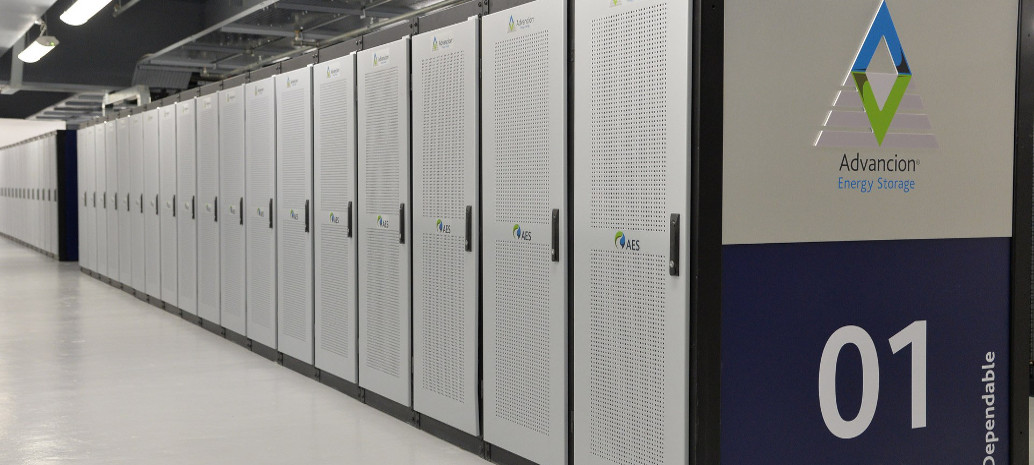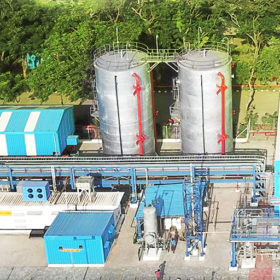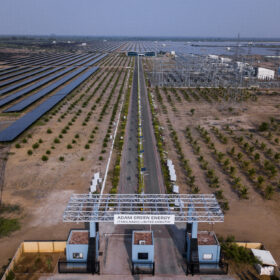The 10 MW grid-connected system, owned by AES and Mitsubishi Corporation, will pave the path for wider adoption of grid-scale energy storage technology across India. It uses the Advancion energy storage platform from Fluence, a joint venture of Siemens and AES.
Speaking on the occasion, Praveer Sinha, CEO and managing director of Tata Power said, “Grid-scale energy storage will pave the way for ancillary market services, power quality management, effective renewable integration and peak load management of Indian grids.”
The project, located at Tata Power Delhi Distribution’s sub-station in Rohini, will provide grid stabilization and protect critical facilities for 2 million consumers served by the company.
Battery-based energy storage enables electricity to be stored and then delivered within milliseconds, reducing instability of the electric grid, and enabling more energy to be captured and delivered on demand.
Fast-ramping energy storage like the Delhi system can be built in a matter of months to provide critical flexibility to wherever needed on India’s grid. In comparison, older technologies, such as pumped hydroelectric energy storage can take years to build and are highly dependent on geographical locations. Battery-based energy storage also uses no water and produces no emissions.
India has the ambitious goal of installing 225 GW of renewable energy by 2022. Battery-based energy storage provides the flexibility and agility to better integrate intermittent solar and wind energy resources into India’s electric grid, and ensure high-quality power for consumers.
“Battery-based energy storage has an essential role to play in helping India realize its vision for a more sustainable energy future,” said Andrés Gluski, AES president and CEO. “AES has been committed to delivering safe, reliable and affordable power in India for the last 27 years and we’re proud to bring the country’s first major grid-scale energy storage solution online and open the market for the use of battery storage technology in India.”
This content is protected by copyright and may not be reused. If you want to cooperate with us and would like to reuse some of our content, please contact: editors@pv-magazine.com.








1 comment
By submitting this form you agree to pv magazine using your data for the purposes of publishing your comment.
Your personal data will only be disclosed or otherwise transmitted to third parties for the purposes of spam filtering or if this is necessary for technical maintenance of the website. Any other transfer to third parties will not take place unless this is justified on the basis of applicable data protection regulations or if pv magazine is legally obliged to do so.
You may revoke this consent at any time with effect for the future, in which case your personal data will be deleted immediately. Otherwise, your data will be deleted if pv magazine has processed your request or the purpose of data storage is fulfilled.
Further information on data privacy can be found in our Data Protection Policy.